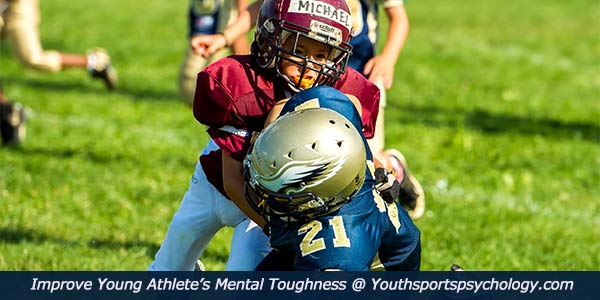
Positive Actions Empower Young Athletes
What kinds of adversity have your sports kids encountered?
Perhaps they have experienced an injury or long-term sickness. Maybe they were cut from a team or benched by their coach. They could have bombed a big competition or missed the playoffs. They could also experience conflict with teammates.
These types of adversity can be challenging, depending upon the kids’ perspective.
Recently, the COVID pandemic created huge challenges for all athletes.
Young athletes may feel as if the pandemic dashed their hopes and dreams for the athletic year.
When sports kids encounter adversity during their athletic careers, it may feel as if they can do nothing about it. However, that mindset leaves kids feeling helpless.
No matter what young athletes are facing, if they take positive action, it will help alleviate the stress associated with adversity.
For example, kids may not be able to perform at their peak when they are injured or sick, but they still can do something. They can utilize their time to improve their mental game, strengthen physical weaknesses or catch up on schoolwork.
Sports kids may feel hopeless when they’re cut from a team or benched, but they can still take action to positively impact their performance. They can look for new ways to hone their technique, improve their conditioning or work on weaker parts of their game.
If kids are clashing with teammates or dealing with personal issues, they may feel powerless. To overcome those feelings, they can learn to communicate better, take responsibility for their actions or find resources to help them with personal challenges.
It’s empowering to take positive action when faced with adversity.
Taking positive action:
- Prepares kids for the future.
- Prepares kids to compete when the pressure is on.
- Helps build mental toughness.
The COVID-19 crisis led to the postponement of the 2020 Tokyo Olympics. This was tough on all the athletes who were prepared to showcase their abilities on a world stage.
Portuguese professional triathlete Pedro Gomes, who spent countless hours training and preparing for the biggest competition in the world, struggled with uncertainty and loss of control–major forms of adversity.
“Mentally, I was definitely lost. I just did not know how long the pool was going to be closed,” said Gomes. “The uncertainty of not knowing when this is going to end and being completely out of my control, it was something scary.”
Gomes decided to do something. He took to his indoor bike trainer and virtually raced against his friends.
Doing something, just as Gomes did, helps kids take back some control and leaves them feeling more empowered.
Taking positive action builds resilience and mental toughness. Overcoming adversity helps kids become well-prepared athletes. The key is for kids to maintain the proper perspective.
When adversity strikes, young athletes should think about two positive actions they can take to improve as athletes.
Help kids commit to improving their game by working on their fitness, strength or mental game.
When should kids work on their mental game? They should do this during the preseason, during the season and any time they can’t train due to adversity.
Help young athletes find ways to take positive action when they face adversity, and they’ll feel empowered.
Related Articles on Youth Sports:
- Help Sports Kids Stay Active During COVID-19
- How to Help Young Athletes with Mental Health During COVID-19
- Keeping Kids Moving During the COVID-19 Crisis
*Subscribe to The Sports Psychology Podcast on iTunes
*Subscribe to The Sports Psychology Podcast on Spotify
The Composed Sports Kid

“The Composed Sports Kid” audio and workbook digital download program for young athletes and their parents or coach helps kids cope with frustration and anger in sports. Help your sports kids learn how to manage expectations and let go of mistakes so they can keep their head in the game.
The Composed Sports Kid system is really two programs in one–one program to train parents and coaches how to help their kids practice composure, and one program that teaches young athletes–ages 6 to 13–how to improve composure, let go of mistakes quickly, have more self-acceptance, and thus enjoy sports more!
